Celebrating Sophie B. Hawkins’ milestone debut album
Tongues and Tails is one of the great albums by any LGBTQ artist and unbelievably it turns 30 this year. Add it to your playlist and enjoy this exclusive interview with its creator, Grammy-nominated Sophie B. Hawkins.
April 21, 1992 marked the release of Tongues and Tails (Columbia), the breakthrough debut by New York City singer-songwriter Sophie B. Hawkins. The album received mainstream chart attention around the world for its opening track and hit single “Damn I Wish I Was Your Lover,” which introduced the feeling of romantic longing as a rhythmic, binary-defying state of being—a rejection of most pop love songs before or since.
The song also spoke to queer people with an opening lyric that encapsulated our often outré relation to desire: “That old dog has chained you up alright.” And, of course, the line “And I lay by the ocean making love to her,” beloved by lesbians the world over.
Hawkins’ trademark mane of blond hair, tomboyish swagger, chewy New York drawl, and a cognizance of her own powerful gifts sparkling in every utterance added to her appeal.
And not just queer folks took notice. After all, Hawkins wasn’t quite in the same camp as k.d. lang or Melissa Etheridge, although she often performed barefoot like lang and she did perform with Etheridge. No, in 1992, the A&R men thought they might just have found a challenger to Madonna. But rightly so, Rolling Stone‘s 1992 review of Tongues and Tails skipped over “inevitable” comparisons to the Queen of Pop to find similarities with more idiosyncratic artists such as Prince and Seal, with the reviewer noting Hawkins’ range was more multifaceted than many artists of her gender—whether vocally, musically, or thematically. Hawkins’ own sexuality wove throughout the album, sometimes a tongue, sometimes a tail, but always creature-like, unleashing a representation of female sexuality as primal, spiritual and transcendent—and never for the sake of selling records.
Meanwhile, over at the Grammys the Recording Academy agreed, and Hawkins was nominated for Best New Artist in 1993.
Edgy and mainstream at the same time, Hawkins achieved the impossible: ostensibly coming out of nowhere, getting signed by a major label, and creating her own work to her own standards. And not only that: she forged an unbreakable bond with the LGBTQ community right out of the gate when she described her orientation as omnisexual—decades before recording artists such as Janelle Monae or Miley Cyrus played with categorization. In an interview with the New York Times, what Hawkins told Jon Pareles 30 years ago holds true today for many folks:
“I learned all the things I am by being who I wasn’t supposed to be, playing all the roles I wasn’t supposed to play. Before I allowed myself to be manly, sexually, I was embarrassed by being really womanly. Now I find it really fun to be everything, and it depends on who brings what out of me.”
She sang about all kinds of desire and “playing all the roles.” The lyrical equivalent of a Rorschach test, it’s up to the listener to decide what they just heard in Hawkins’ sonic jungle book of self-expression.
With “Damn I Wish I Was Your Lover” a commercial success all around the world, Hawkins was thrust into the limelight along with top-selling female musicians such as Annie Lennox and Mariah Carey—but with one key difference: 10 of the 11 tracks on Tongues and Tails were written and composed by Hawkins (the exception is an acclaimed cover of Bob Dylan’s “I Want You”). Even the paintings on the record sleeve were hers.
Fast forward 30 years and many achievements later including four more studio albums, another in the works, her own record label, countless live gigs, acting roles, activism, and two children—one of whom she birthed at the age of 50, Hawkins continues to astonish and defy classification bringing joy to fans everywhere. With gigs lined up for Spring and Summer across the U.S., I was thrilled she found the time to sit down and discuss how one of my favorite albums came to be.
Q40: What was it like in 1992 to burst onto the scene as an unknown artist with Tongues and Tails?
Sophie B. Hawkins: The single “Damn I Wish I Was Your Lover” came out months before the album and so I had my first experience with radio, my first tour—I had never been to Europe before. By the time it came out I was probably thinking, Nobody’s going to like it. I was just in my Christopher Street apartment, writing songs and keeping to myself every time I wasn’t on the road. I do remember in this moment, my doorbell rang—I used to play a lot in my apron, boxer shorts and T-shirt because I’d be cooking and playing like I still do in my best moments of writing—and I answered it for some reason, and there were two of the sweetest teenagers, a boy and girl, with flowers for me. And somehow they got past the buzzer and up to my apartment and they wanted to thank me for the album… It was so bizarre that I was suddenly a person that people wanted to know. Suddenly people were saying, Oh, you’re great, simply because an album came out.
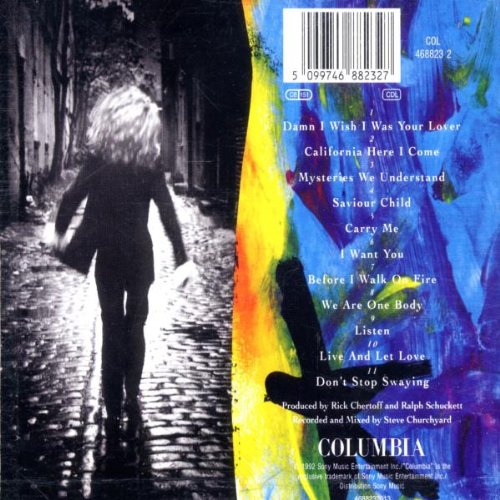
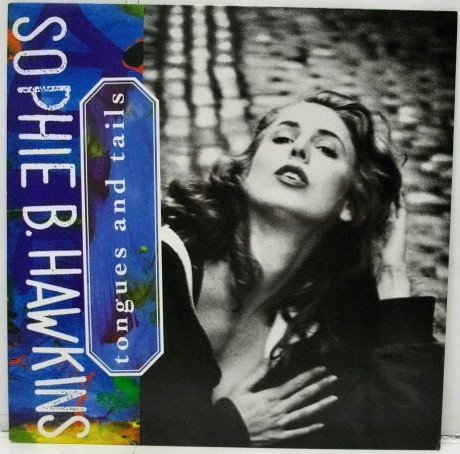
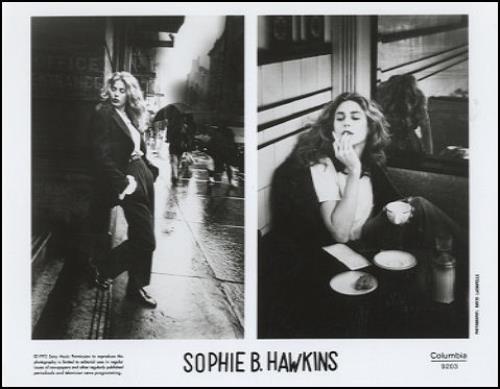
It seems like the album was this sudden commercial release but you’d been working on these songs for years.
Sophie: At 14 I began learning music as an African drummer. It became my only focus through high school, and I went to Manhattan School of Music as a percussion major. I was in African bands, jazz bands, and rock bands. Eventually I started writing songs by myself, drumming and singing onto a cassette. I played out drumming, and started adding my songs to the sets with other bands. When 4-track cassette recording was invented in the ’80s I used that. In the late ’80s a cab driver invited me to record my songs on his 8-track in the East Village when he drove the graveyard shift. So now I could really orchestrate my arrangements. I had been a classical marimba player doing Bach, Vivaldi, Beethoven. I was very aware of what I wanted to do.
Basically, then as now, a song comes out on one instrument—a piano or a guitar—I sing and play until I’m ready to record, after that process the song is tested by hearing it back in different ways, and then I have the enjoyment of finessing it, doing the background vocals, creating a deeper, more visual soundscape with strings, piano, percussion, frying pans. I used anything in the apartment that I could to echo what I had been developing through my African drumming, jazz, vibraphone, to my self-taught study of songwriting, which included a lot of Motown and gospel.
And the Manhattan background soundscape, how did that happen?
Sophie: Rick Chertoff—he was head of A&R at Sony and one of the reasons I signed with Sony was because he was so smart and he loved my demos, especially the weird songs like “Listen” and “Carry Me,” he thought those were very important songs, so I was trusting of him—he handed me the first ever DAT Recorder I’d seen in New York (it was a Sony and Columbia had just become Sony) and he said, What would you do with this? And I said, Well, I would walk around everywhere I love in my city, and I would record people that I love to listen to in general. So the guys in “Mysteries We Understand,” I got off the subway at West 4th Street and I turned on the recording and there they were playing basketball and arguing about Magic Johnson. The subway intro to “Damn” is a recording of my A train, and in “Savior Child” I asked an Indian cab driver how to get to the Holland Tunnel because I wanted it to include the voices of the immigrants who come here, who make a life—how each of us has to find our own way in this city.
The music industry then had women artists putting music out on major labels: Madonna, Whitney Houston, Mariah Carey—but they were incredibly commercial. And this is not what you were doing.
Sophie: No. And interestingly, when I met [record producer] Clive Davis, when it got to the point that I had seven record companies bidding for me, which was the scariest thing in the world—when you finally get to this place after all these other battles and then you realize you’re at the biggest crisis point because record company heads are the most brutal people in the world, and they could destroy your career before your record even comes out—and I got to this place right after all the rejections, after being a musician, and being fired as a drummer, and this is the weirdest part: they’re wining and dining me and I had one outfit. I knew when I met with Clive Davis that he would try to change me. He loved my record and I admire him as a person very much, and he promised me the biggest kingdom you can give an artist. And I said no, I walked away from him. Seymour Stein, he told me all the ways that he made Madonna famous, and I walked away from him. Then I was sitting at dinner with Donny [Ienner] and we were eating crispy spinach at a Chinese restaurant and he asked me what was my favorite song in the last couple of years and I said “Father Figure” [by George Michael] and that bonded us. He really liked it for the right reasons so I decided he liked me for the right reasons. He loved my demos—not the cleaned-up demos—he loved the original home demos from that 8-track. He insisted the lead vocal from the demo of “Before I Walk on Fire” be the lead vocal we used on the album.
Now, the single that went up the charts was “Damn I Wish I Was Your Lover.” Its layers and loops sounded completely new to me. It was the first time I had heard a white woman sing with a New York accent, with urban sounds, with sensuality, and an autobiographical artistic sensibility.
Sophie: And those are modal chord changes. The word “damn” is a major seventh happening over a triad. And there’s no major seventh in any part of the orchestration to support that. So with my strident high voice it sounds like “damn” sounds, pulling against the norm—tension.
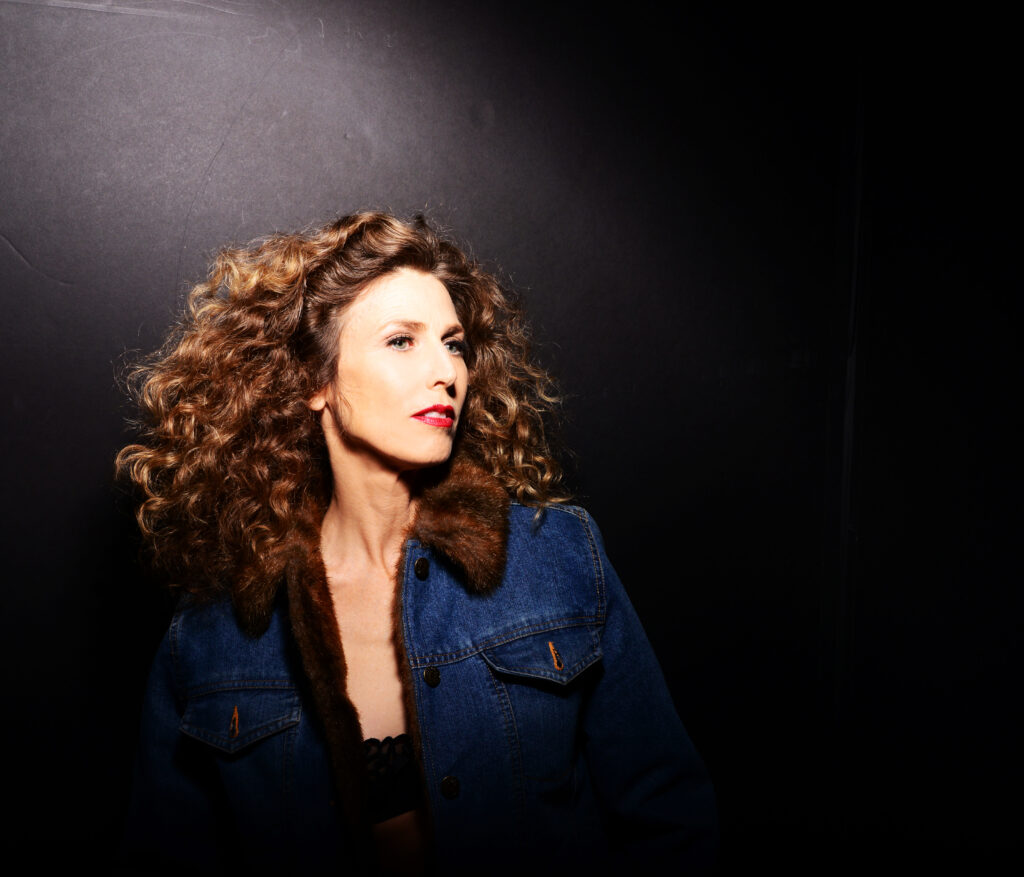
You’ve been asked many times who is the song about but I know you will never tell anybody.
Sophie: Yeah, they’re never going to know.
You’re not even going to tell me, are you?
Sophie: Never. I’m not going to even say it on my deathbed.
All right, can I ask you something different but related. What feeling led to this song?
Sophie: Yes. Because I think the even better answer to who songs are about for anyone, really, if you are truly an artist/songwriter, is what triggered the song because it comes from someone’s deep recesses. Even if I said, It’s about so-and-so, it would ruin it. Because what it’s really about is: you’re triggered. It wasn’t like the chorus came first, the verse came first and the verse chords came first and it’s modal, I think of a Gregorian chant—music that’s meant to open up your mind to spirituality. So the verse comes first, “That old dog has chained you up alright.” What the hell am I talking about? I didn’t even know, but I was going through relationships at that time, brand new vistas, I had been in a relationship with my African drum teacher for many years, learning African drums, learning jazz and then music school. And I left that whole thing and I went downtown to the art scene with all these outrageously creative women, and I was inspired by them and it was like watching these Greek goddesses doing their thing. And it triggered my own relationships with my parents and my early, deepest loves and my deepest dramas with my deepest loves. And those feelings, like tongues and tails, these layers—they’re like the biggest tree in the forest, the mother tree and all the trees.
This was around the same time you coined the word ‘omnisexual’ to describe your sexual orientation. Why was this important for you to declare in 1992 to the journalist Jon Pareles?
Sophie: We were at a coffee shop and he asked me if I were gay and I always want to answer truthfully. I wouldn’t know how to actually lie about it. I haven’t set up a path where I could lie. There was no plan for me. Sony didn’t give me media training. They never asked me. And they didn’t dare say, Take that third verse “I lay by the ocean making love to her” out of the song… They didn’t dare. So I just thought, Well, the relationships I’d had with women were watersheds where they had opened up this this deep heart inside of me, and all this creativity flowed from it; but I couldn’t ignore my incredibly foundational and deep relationships with [men]. I was young and I knew I wanted to be open to my creative journey. So I sat there and I felt like the clock was ticking. If I waited too long, he’d think I was lying. You know, we were made to study Latin in school and I had always read the Greek myths and everything, so then I said to him, Omnisexual, but I think I also said to him, My sexuality isn’t related to my gender.
I was saying this a long time ago. Now people are realizing their gender doesn’t have to do with their sexuality all the time.
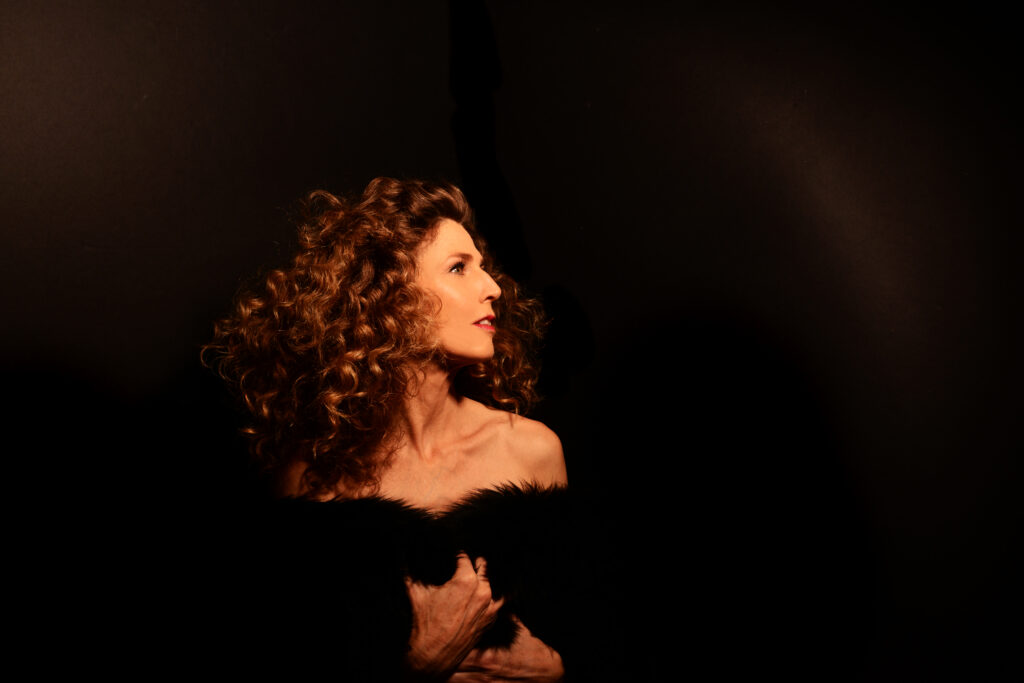
You’re touring in May, June, July all over the country and some of these gigs will be around Pride. I like to think “Damn” is a Pride song. Do you still like to sing it?
Sophie: Of course I do. I do everything that people want because I’m not an artist who says, I don’t want to do my hits. I’m an artist who says, Thank you so much for liking my music because it’s how I’m here. It’s how I’m existing. I love when people love my songs, and I would never deprive an audience of them. “Damn I Wish I Was Your Lover” is fun to sing. It’s challenging, too, by the way. I think the reason people don’t cover my songs is they’re extremely hard to sing, even for me. They jump ranges and are just difficult, and that’s good. I wouldn’t want to sing a boring song. I want people to come out and I want people to show me how much they love the music because then I can share that with them.
Check out Sophie’s tour dates here. Follow Sophie B. Hawkins on: Facebook | Instagram | YouTube | Spotify

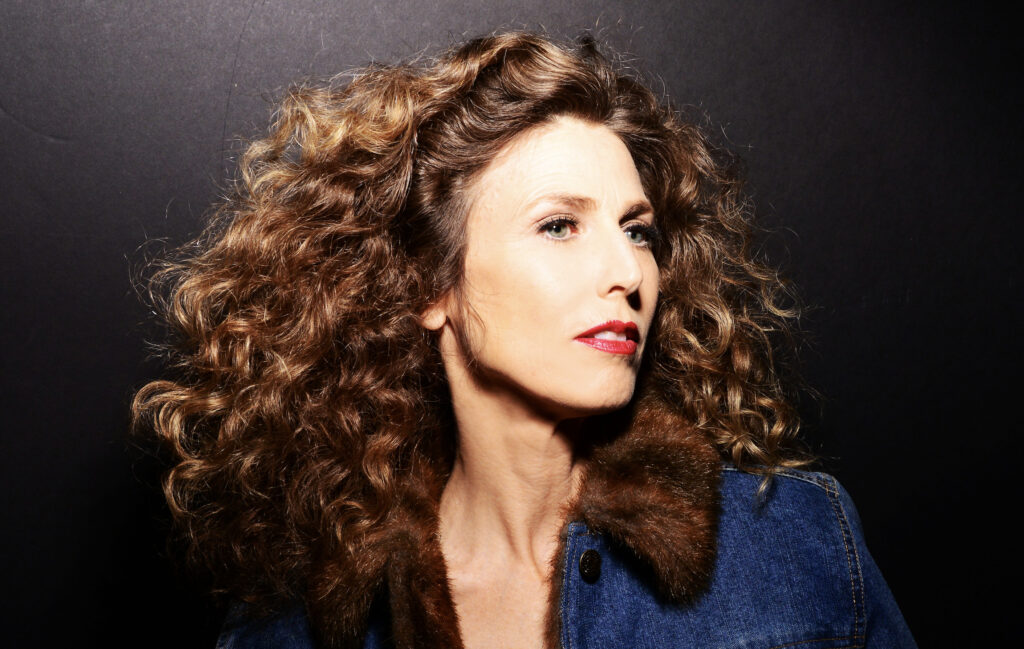





Dear Ms. Johns,
Sophie has in fact said who she is referring to in “Damn I Wish I Was Your Lover.” Sophie’s told the story in at least two of her concerts and once in an on line interview.
Sophie is referring to herself in “Damn.”
“I’ve come to realize that ‘Damn’ is more autobiographical than anything else,” said Sophie. She is “making love to herself.” In other words learning to love herself.
I understand why, in your interview Sophie said that she will never tell who she meant. First, Sophie doesn’t always reveal deeply rooted feelings consistently. Second, Sophie sometimes forgets what she’s said in previous interviews and concerts. For example, in a VIP session in Port Clinton Ohio in 2018 a participant repeated a quote that she attributed to Sophie. Sophie turned to me and said, “Did I say that?” I confirmed that she had and cited the interview. It’s happened twice and I’ve noticed somewhat of a pattern from interview to interview.
I’ve attended at least 8 of Sophie’s concerts. I’m Sophie’s self-appointed historian. I’ve collected, transcribed, and collated every live, on line, and print interview. Ninety-five percent of her interviews dating back to 1992 are alive on the internet, even the original NYT interview. I’ve completed more than 5 volumes of “Sophie B. Hawkins: Herstory” for her children Dashiell and Esther. (I make two copies of each.). These volumes are keepsakes so that Dashiell and Esther will know how wonderful their mother is. Although, Sophie told me that the volumes are really records for her grandchildren someday.
In addition I’ve collated and printed in binder form all of Sophie’s “musings” for her children. I’ve completed Sophie’s discography at her request.
I do not in any way mean to diminish “Damn I Wish I Was Your Lover” as the LGBTQ’s anthem. It’s just that it’s more than that. It’s everyone’s anthem.
Kindest Regards,
Marc Cohen
fastbat2121@gmail.com
905-867-5825
Georgetown, Ontario, Canada